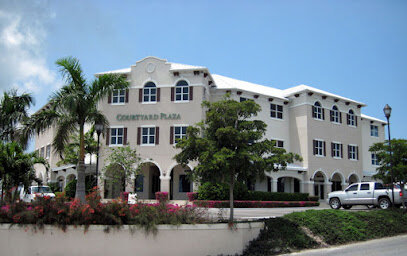Best Trusts Lawyers in Cockburn Town
Share your needs with us, get contacted by law firms.
Free. Takes 2 min.
List of the best lawyers in Cockburn Town, Turks and Caicos Islands
About Trusts Law in Cockburn Town, Turks and Caicos Islands:
Trusts in Cockburn Town, Turks and Caicos Islands are legal arrangements where a person (the settlor) transfers assets to a trustee to hold and manage for the benefit of one or more beneficiaries. Trusts can be used for various purposes, such as estate planning, asset protection, or charitable giving.
Why You May Need a Lawyer:
You may need a lawyer for assistance with creating a trust, interpreting trust documents, resolving disputes among trustees or beneficiaries, or ensuring compliance with local trust laws and regulations. A lawyer can provide valuable advice and guidance to help you navigate the complexities of trusts.
Local Laws Overview:
In Cockburn Town, Turks and Caicos Islands, trust law is governed by the Trusts Ordinance. Some key aspects of local trust laws include requirements for creating a valid trust, duties and powers of trustees, rights of beneficiaries, and rules for trust administration and termination.
Frequently Asked Questions:
1. What is a settlor?
A settlor is a person who creates a trust by transferring assets to a trustee for the benefit of beneficiaries.
2. What are the duties of a trustee?
Trustees have a duty to act in the best interests of the beneficiaries, to manage trust assets prudently, and to follow the terms of the trust document.
3. Can a trustee be removed?
Yes, a trustee can be removed by the court or by the beneficiaries if they fail to fulfill their duties or act improperly.
4. How are trusts taxed in Cockburn Town?
Trusts in Cockburn Town may be subject to taxation, and it is advisable to seek advice from a tax professional to understand the implications of trust taxation.
5. Can a trust be amended or revoked?
Depending on the terms of the trust document and local laws, a trust may be amendable or revocable under certain circumstances.
6. What is a beneficiary entitled to?
Beneficiaries are entitled to receive trust assets or income according to the terms of the trust document, and trustees have a duty to act in their best interests.
7. How long does a trust last?
The duration of a trust can vary depending on the terms set out by the settlor in the trust document. Some trusts may last for a specific period or until certain conditions are met.
8. Can I create a trust without a lawyer?
While it is possible to create a trust without a lawyer, consulting with a legal professional can ensure that your trust is legally valid and meets your specific needs and objectives.
9. What happens if a trustee breaches their duties?
If a trustee breaches their duties, they may be held liable for any losses incurred by the trust or beneficiaries and may face legal consequences.
10. How can I protect my assets with a trust?
Creating a trust can help protect your assets from creditors, lawsuits, or other risks by transferring legal ownership to a trustee for the benefit of beneficiaries.
Additional Resources:
For more information on trusts in Cockburn Town, Turks and Caicos Islands, you can contact the Financial Services Commission or consult with a local law firm specializing in trust law.
Next Steps:
If you require legal assistance with trusts in Cockburn Town, Turks and Caicos Islands, it is advisable to seek guidance from a qualified trust lawyer who can provide personalized advice and support based on your specific situation and needs.
Lawzana helps you find the best lawyers and law firms in Cockburn Town through a curated and pre-screened list of qualified legal professionals. Our platform offers rankings and detailed profiles of attorneys and law firms, allowing you to compare based on practice areas, including Trusts, experience, and client feedback.
Each profile includes a description of the firm's areas of practice, client reviews, team members and partners, year of establishment, spoken languages, office locations, contact information, social media presence, and any published articles or resources. Most firms on our platform speak English and are experienced in both local and international legal matters.
Get a quote from top-rated law firms in Cockburn Town, Turks and Caicos Islands — quickly, securely, and without unnecessary hassle.
Disclaimer:
The information provided on this page is for general informational purposes only and does not constitute legal advice. While we strive to ensure the accuracy and relevance of the content, legal information may change over time, and interpretations of the law can vary. You should always consult with a qualified legal professional for advice specific to your situation.
We disclaim all liability for actions taken or not taken based on the content of this page. If you believe any information is incorrect or outdated, please contact us, and we will review and update it where appropriate.









